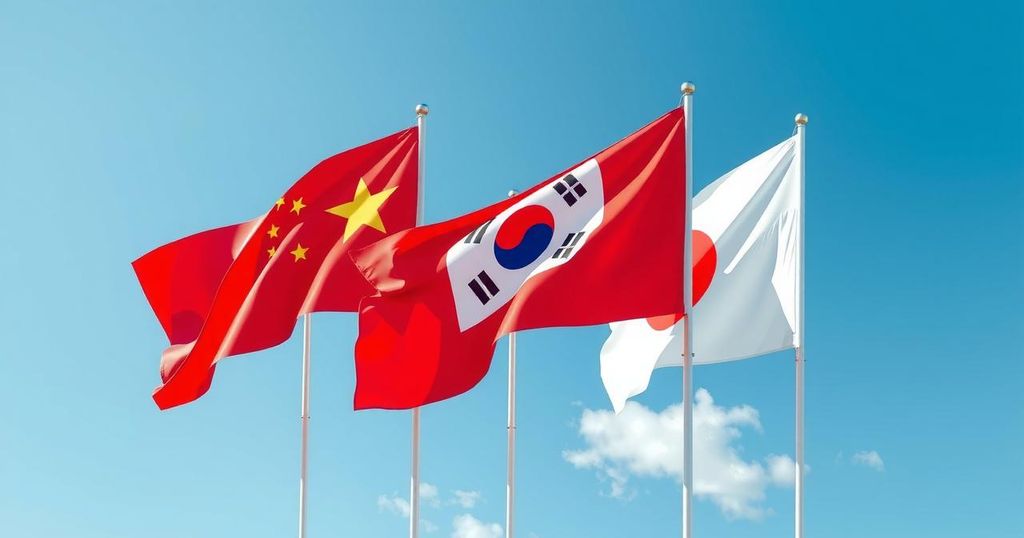Politics
ALEXEI NIKOLSKY, AP, ARBITRARY DETENTION, DIPLOMACY, DIPLOMATIC RELATIONS, EUROPE, EUROPE/ASIA, FIFA, GIA, GIANNI INFANTINO, KEYSTONE, MIDDLE EAST, MOHAMMED BIN SALMAN, MOSCOW, NATION, RUSSIA, SOUTH ASIA, SP, SWITZERLAND, U. N, U. N. HIGH COMMISSIONER FOR HUMAN RIGHTS, UN, UNITED, UNITED NATION, UNITED NATIONS, VOL
Sophia Klein
UN Human Rights Chief Aims to Safeguard Labor Standards for 2034 World Cup
U.N. Human Rights Chief Volker Türk has pledged to ensure respect for migrant labor standards as FIFA prepares to confirm Saudi Arabia as the host nation for the 2034 World Cup. Concerns persist regarding labor practices in Saudi Arabia, particularly following criticisms from human rights advocates and U.S. lawmakers. The UN aims to provide guidance on human rights issues during the tournament planning.
On December 9, 2024, Volker Türk, the United Nations High Commissioner for Human Rights, announced his intention to assist FIFA and Saudi Arabia in ensuring that migrant labor standards are upheld in the planning for the 2034 World Cup. With FIFA poised to confirm Saudi Arabia as the sole host nation, concerns have arisen regarding the treatment of migrant workers, particularly those from South Asia, under the country’s labor framework. Activists worry that the upcoming World Cup may replicate the human rights violations witnessed during the preparation for the 2022 World Cup in Qatar.
During a press conference in Geneva, Türk emphasized the UN’s focus on incorporating human rights into major sporting events. Although he acknowledged that FIFA had not engaged the UN directly about the World Cup, he expressed commitment to ensuring that migrant worker protections are a key consideration. The Saudi World Cup bid plan includes the construction of eight new stadiums and the addition of 175,000 hotel rooms, all of which are set to depend heavily on migrant labor.
Critics have raised alarms regarding the past labor abuses in Saudi Arabia, which are currently under investigation by the United Nations-backed International Labor Organization (ILO). U.S. Senators have demanded that FIFA reconsider its decision to confer hosting rights to Saudi Arabia based on these human rights concerns. Türk reinforced that irrespective of FIFA’s decision, the UN would provide essential guidance on labor rights and human rights dimensions associated with large-scale sporting events, highlighting the importance of accountability in such international gatherings.
FIFA, under President Gianni Infantino, has faced scrutiny for its relationship with Saudi Arabia, as the organization has been perceived as failing to leverage its influence in advocating for better labor protections. Although Saudi Arabia’s bid includes promises to engage with certain local labor agencies, it noticeably lacks commitments to include international organizations, unions, and rights groups that face restrictions within the country.
The 2034 World Cup in Saudi Arabia has drawn considerable attention given the nation’s commitment to hosting the event amidst ongoing concerns related to human rights and labor practices. Following the backlash from similar issues during the 2022 World Cup in Qatar, monitoring migrant labor standards has become a central topic of discussion. Saudi Arabia’s ambitious plans for the tournament involve constructing numerous facilities, which will largely depend on foreign labor. This aspect raises critical questions about the ethical management of these workers and the protections afforded to them under local laws.
The commitment of the UN to oversee human rights standards during preparations for the 2034 World Cup reflects ongoing global scrutiny of labor practices in hosting nations. As Saudi Arabia prepares to assume hosting responsibilities, the importance of ensuring migrant labor protections cannot be overstated. The collaboration between organizations, such as the UN and FIFA, is essential in mitigating potential abuses and fostering accountability in the realm of international sports.
Original Source: apnews.com








Post Comment